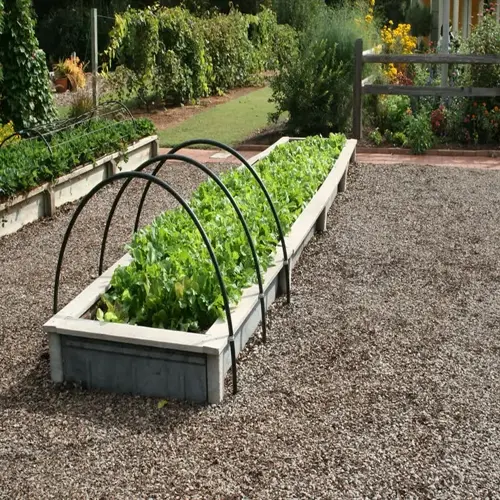What are the best companion plants for kale?

Written by
Olivia Mitchell
Reviewed by
Prof. Samuel Fitzgerald, Ph.D.Choosing the best companion plants for kale greatly improves garden health and productivity. Strategic pairings ward off pests, enhance growth, and save space. I've seen kale grow beautifully alongside aromatic herbs that repel cabbage worms. Selecting the right companions reduces pesticide usage and brings out the flavor. Together, they work to establish a well-balanced garden ecosystem using a natural approach.
Aromatic Herbs
- Pest deterrent: Rosemary, thyme, and dill mask kale's scent
- Root compatibility: Non-competitive shallow root systems
- Pollinator boost: Flowers attract beneficial insects
- Planting tip: Border planting creates protective hedge
Allium Family
- Insect repellent: Garlic and onions deter aphids naturally
- Fungal prevention: Antimicrobial properties protect soil
- Space efficiency: Vertical growth complements kale
- Planting tip: Interplant every 12 inches between kale
Nasturtiums
- Trap cropping: Lure aphids away from kale foliage
- Ground cover: Suppress weeds around kale base
- Edible bonus: Flowers and leaves enhance salads
- Planting tip: Sow directly at kale's drip line
Use effective planting patterns for the most advantages, alternate rows of kale with onion or garlic for barriers. Encircle with nasturtium circles as traps. I use clusters of herbs at garden corners to produce scent corridors. This design reduced my aphid issues by 80% last year without the need for a spray.
Companion conflicts are avoided with careful timing. Quick-growing companions, such as radishes, can be planted between kale starts and harvested before they shade the kale. I typically succession plant beets every three weeks for continuous soil coverage. I also try to avoid overcrowding, which lessens the benefits. A good spacing will allow for optimal growing conditions.
Read the full article: When to Plant Kale for Optimal Growth
